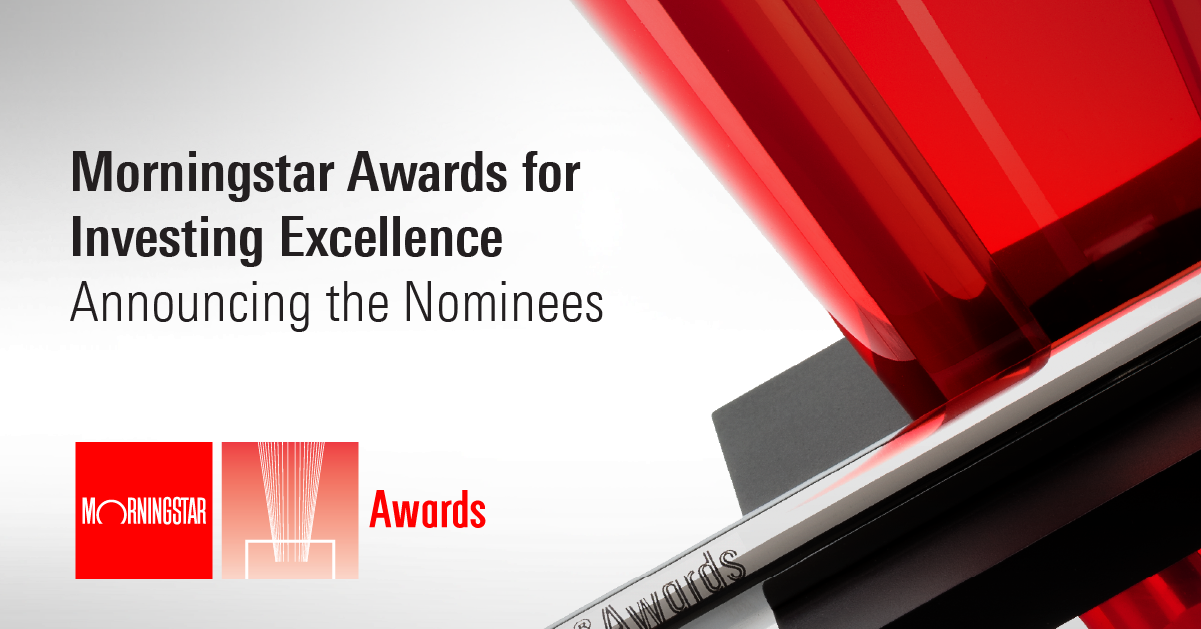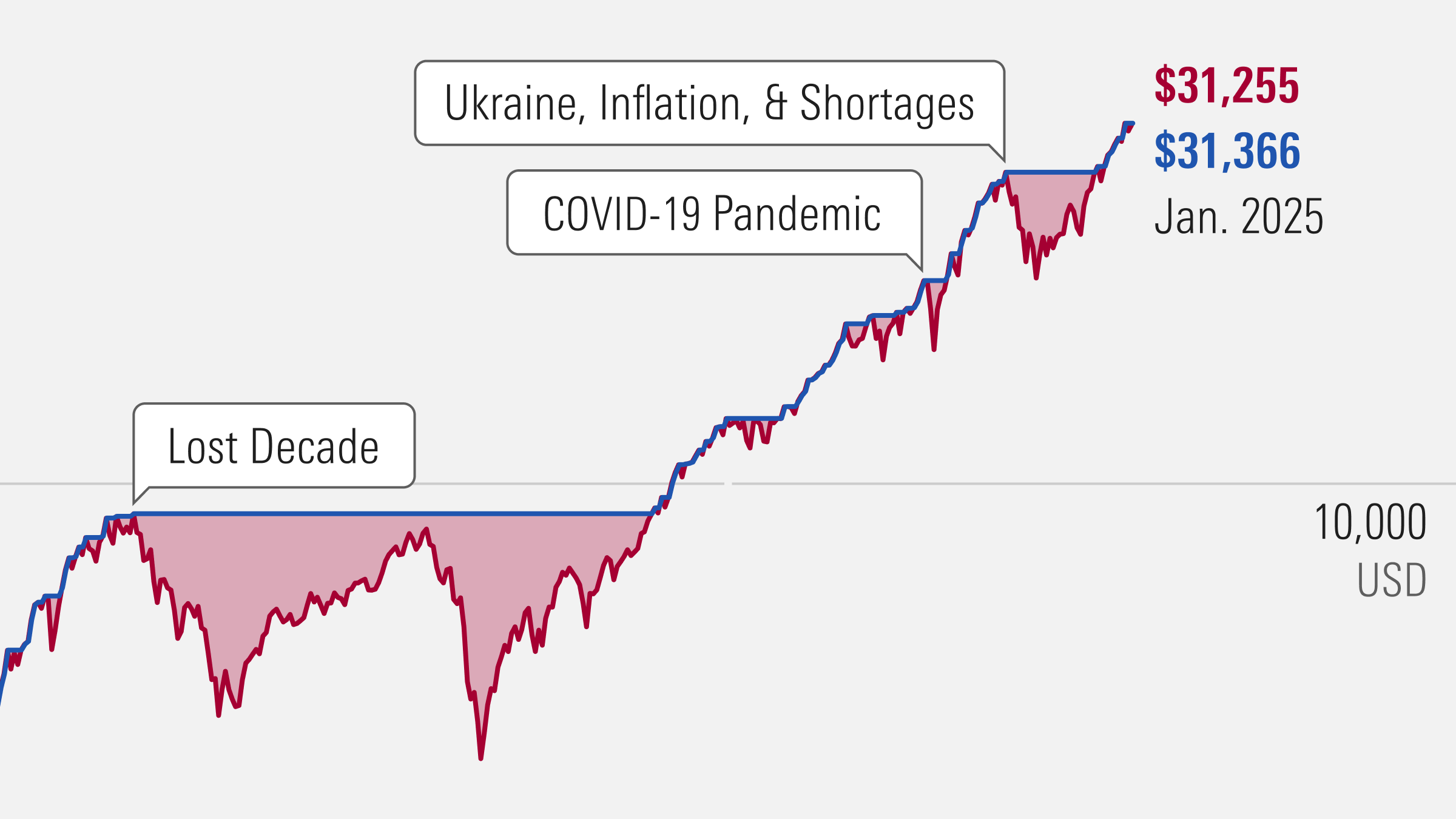
In this series of short profiles, we ask leading fund managers to defend their investment strategies, reveal their views on cryptocurrency, and tell us what they'd never buy.
This week our interviewee is James de Uphaugh, Head of the Liontrust Global Fundamental team and manager of the Morningstar 2-star rated Edinburgh Investment Trust (EDIN).
Which Sector Shows the Biggest Promise in 2022?
Defence companies have increasing order books that are of multi-year duration and yet their ratings are relatively low. The backdrop is that defence spending has moved up the list of many governments’ priorities. Many lessons will be learnt from Putin’s war of choice in Ukraine but critical ones are the value of deterrence and the continued need for deep stocks of weaponry if a conflict turns in a long conventional war. Longer term, China’s assertive policy towards Taiwan means defence spending will remain a high priority in Asia. Taiwan is of massive strategic importance because it is where the majority of the world’s high-end semiconductors are made.
What's the Biggest Economic Risk Today?
Geopolitics and deglobalisation. After a long relatively benign period, the muscular rise of China is encountering pushback from the US. Many a multinational has expanded its margins on the back of a supply chain based out of China. This is now seen as a risk. The latest development is that the US is also looking to restrict China’s access to cutting edge semiconductors. Intellectual property is being weaponised, and geopolitics is entering an enduringly complicated phase.
Describe Your Investment Strategy
We are aiming to broaden awareness of and engagement with Edinburgh Investment Trust through developing its brand and therefore expand demand among wealth managers and private investors. This in turn will narrow the current high single digit discount in. We were appointed in late 2019 because of our thoughtful investment approach in which we consider the market environment and then evolve relative weightings to growth, value and recovery companies accordingly.
We take a view on the macro outlook we face but the team spends the vast bulk of our time researching the companies themselves. Crucial to this is understanding the company’s business model and really getting a grasp of a company’s underlying model and generating a view on a company’s competitive advantage. Only once we have done that does the team fine tune the Excel models, pore over notes in the Annual Report and get a handle on the valuation and consequent risk /reward profile.
Which Famous Investor Do You Admire?
I struggle to single out one investor. Over the years I have been lucky to work with a number of instinctive investors ranging from Leonard Licht at Mercury in the late 1980s through to my colleagues at Majedie and Liontrust.
Name Your Favourite "Forever Stock"
Dunelm has evolved from a family run company while retaining many of the best attributes of a family run company, with long term decision making in its DNA and so is ideally suited to be a “forever” stock. Dunelm addresses the homewares market – a market that has over the long term grown at 1-2% per annum. There may be a divot in trading ahead but over the last 10 years 85% of Dunelm’s growth has come from market share gains. Why? Compelling price points and ranges on the back of a long-established supply chain. The Covid period has accelerated its shift to omni-channel and it is set to make hay against a fatigued competitor set. With leverage low and the rating depressed by uncertainty about consumer spending, this would be my pick for a “forever” stock.
What Would You Never Invest In?
“Never” is a strong word for a flexible investor but tobacco is something I’ve not invested in for many years. Despite the industry trumpeting so-called reduced risk products, I struggle to see the tobacco sector’s positive societal angle and look for high, shorter duration free cashflow yields elsewhere.
Growth or Value?
As a flexible investor I invest in both growth and value shares but if pushed to choose one for the next decade I would have no hesitation in saying value. Why? There were multiple factors driving the outperformance of growth over value in the last decade, but the valuation set up for value is now much better. Firstly, value has been crushed relative to growth as the consensus incorporates a recession. Then factors like bond yields, higher structural inflation on the back of commodity market deficits, green transition spend, reshoring and the like are all potentially helpful for value shares.
House or Pension?
House – I have lived in the same house for over twenty years, I love it and it has provided a reassuring base for us as a family.
Crypto: Brilliant or Bad?
Bad – if a company gets a cyber-attack what do the attackers usually ask for the ransom to be paid in? That speaks volumes for how the law enforcement authorities and regulators will treat crypto over the medium term.
What is the Biggest Change in the Industry You’ve Seen over your career?
The remorseless rise of indexation.
Have you Ever Engaged with a Company and Been Particularly Proud (or Disappointed) in the Outcome?
I asked AB Foods (the owner of Primark) to set out clearly at a Capital Markets Day their roadmap to ensuring their affordable fashion was as sustainable as possible. This they did.
What’s the Best Advice You’ve Ever Been given?
Stay close to the revenue.
What Would You be if You Weren’t a Fund Manager?
When I was at uni, the tuition was free so there wasn’t the pressing need to spend the holidays polishing my CV with internships. I left with a skinny CV and my applications to corporate finance firms all drew a blank – a blessing in disguise in retrospect as I was offered a job in fund management, which was then a relative backwater. As to what I would have done instead, frankly I don’t know; something creative as I have learned administration is not my forte.


























